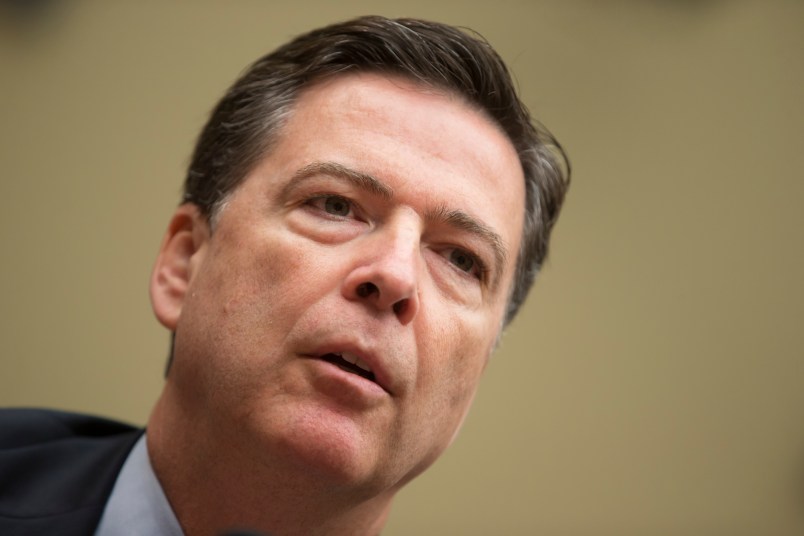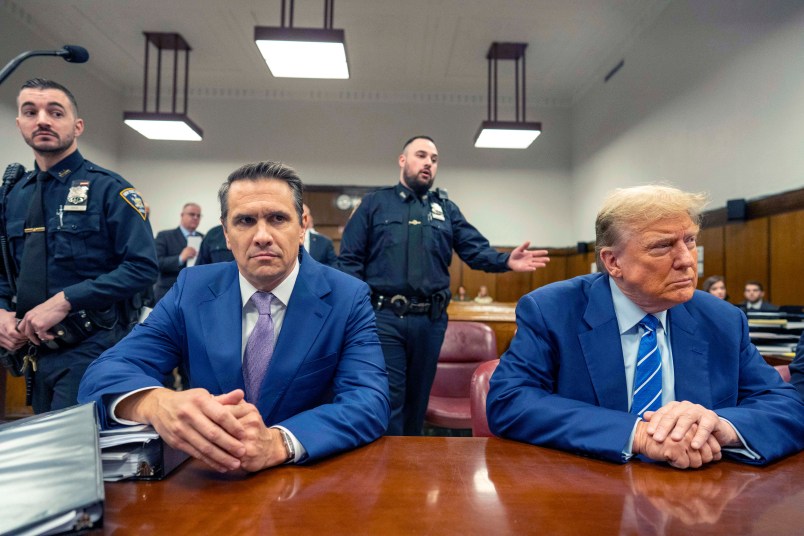Throughout his testimony Thursday before the House oversight committee, FBI Director James Comey defended his decision not to recommend criminal charges against Hillary Clinton arising from her use of a private email server. But he also gave House Republicans some material to work with in attacking Clinton and the way she handled classified information as secretary of state.
Comey assiduously avoided being drawn into partisan politics during his hours of testimony Thursday, and repeatedly denied that politics influenced his decision not to recommend that prosecutors pursue a criminal case against Clinton. But the hearing was drenched in politics, and Republicans were intent on eliciting from Comey comments and judgments that could be used against Clinton in the presidential campaign and perhaps beyond November.
Republicans succeeded on more than one occasion in getting Comey to give franks assessments that could prove to be damaging to Clinton. But in many instances Comey hedged or offered elaboration that worked to Clinton’s political advantage. All in all it was a mixed bag, much as his press conference earlier in the week had been, in which is offered Clinton the political good news of no criminal charges but called her handling of classified information “extremely careless.”
Mishandling classified info can result in professional consequences
During an exchange with Rep. Ron Desantis (R-FL), Comey acknowledged that when government employees mishandle classified information, they can be reprimanded at work.
“In your statement, you did point out that administrative and security consequences would be appropriate if someone demonstrated extreme carelessness for classified information. So those consequences, that would include potentially termination of federal employment?” Desantis asked Comey.
“Correct,” Comey replied.
Comey also said that it could result in revoking a security clearance, when asked by Desantis.
“And it could include your ineligibility for future positions?” Desantis then asked.
“It could,” Comey responded.
Potential bad precedent for government employees
Comey said he was worried that the conclusion in the investigation into Clinton’s use of email could set a bad precedent for government employees future handling of classified information.
Rep. Will Hurd (R-TX) asked Comey, “Did you take into any consideration the impact that this precedent can set on our ability to collect intelligence overseas?”
“Yes,” Comey replied. “My primary concern is the impact on what other employees might think in the federal government.”
“And you don’t think this sends a message to other employees that if the former secretary of state can have an unauthorized server in their basement that transmits top secret information, that that’s not a problem?” Hurd then asked.
“Oh, I worry very much about that,” Comey responded. “That’s why I talked about that in my statement. Because an FBI employee might face severe discipline, and I want them to understand that those consequences are still going to be there.”
Clinton may not have understood when information was classified
Much of the House hearing with Comey focused on three emails that Clinton received that had markings in paragraphs noting that the information was confidential, but lacked headers noting that they contained confidential information. The confidential information would be marked with a “C” in parentheses.
Rep. Mark Meadows (R-NC) asked Comey if Clinton should have known that the emails contained classified information based on that marking.
“So a reasonable person who has been a senator, a secretary of state, a first lady, wouldn’t a reasonable person know that that was a classified marking?” Meadows asked.
“Yeah, before this investigation, I probably would have said yes. I’m not so sure,” Comey replied. “I don’t find it incredible.”
Meadows found Comey’s response surprising.
“Director Comey, come on. I mean, I’ve only been here a few years, and I understand the importance of those markings,” the congressman said. “So you’re suggesting that a long length of time that she had no idea what a classified marking would be? That’s your sworn testimony today?”
“No, no,” Comey responded. “Not that she would have no idea what a classified marking would be. But it’s an interesting question as to whether — this question about sophistication came up earlier — whether she was actually sophisticated enough to understand what a ‘C’ in parens means.”
“So you’re saying this former secretary of state is not sophisticated enough to understand a classified marking?” Meadows then asked
“That’s not what I said,” Comey shot back. “Not what I’m saying. You asked me did I assume that someone would know. Probably before this investigation, I would have. I’m not so sure of that answer any longer. I think it’s possible — possible — that she didn’t understand what a ‘C’ meant when she saw it in the body of an e-mail like that. It’s possible.”
Did Clinton lie?
At the beginning of the hearing, Chairman Jason Chaffetz (R-UT) jumped quickly to questions about whether Clinton lied about her handling of classified information. The former secretary of state had stated that she did not send of receive classified information over email, but the FBI found classified information on her private server.
Throughout Chaffetz’s questions, Comey acknowledged that there was classified information on Clinton’s server, but he avoided saying that Clinton lied about classified information on her server.
“Did Hillary Clinton lie?” Chaffetz asked.
“To the FBI? We have no basis to conclude she lied to the FBI,” Comey replied.
Chaffetz then asked if Clinton lied to the public, to which Comey responded that he was not qualified to answer that question.
The congressman followed up by asking if Clinton lied under oath.
“Not to the FBI. Not in a case we were working,” Comey responded.
And when Chaffetz asked if Clinton lied in her testimony to Congress, Comey said that the FBI had not conducted a review of her congressional testimony.










